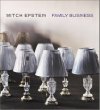by Laurel | February 14th, 2013
07 August 1904
There is serious menace in the increasing number of juvenile cases before the police court at Holyoke, and the solution of the problem how to decreased the number of cases in which gangs of boys figure is a complex and baffling one. From the wayward boy is evolved the corner loafer, the cheap sport, the barroom politician; through juvenile lawlessness a disrespect for law and order and for the rights of others; and the border land between right and wrong, legality and illegality, becomes indistinct: liberty under law is confounded with unrestrained, roving disregard of all law. The rights of property are no longer respected, and in boydom the successful petty thief, flaunting his little spoil, by which he is able often by way of the junk dealer or second-hand dealer to obtain pleasures for himself and his boy friends, becomes a little hero, and his successful example is envied and emulated.
In the disposal of the many cases before the police authorities there are always two confining views. There are those who hold that the juvenile offender is the victim of circumstances and should seldom if ever be treated harshly; and there are those who believe leniency leads to increased misdemeanors, and that instead of being appreciated by the boys thus dealt with it, it results in the officials being considered as “easy marks,” and the belief among many boys that if once brought before the court they will get off with only a talking to. There is surely something to be said in support of both sides. The police view is generally the harsher view; but to offset this is the state officer (Maj. F. G. Southmayd in this district), who in a sense is the boys’ counsel and whose advice is valued and generally followed by the judge of the court. In some cities there are juvenile courts in which the boys are tried; the same effect is brought about by Massachusetts laws by which the boys; cases are heard separately — in Holyoke in the judge’s office — and are not allowed to mix with the maturer offenders. The individual case is looked up often conjointly by the police officials and the state agent, and the probability of the benefit of this or that course of action is duly considered and weighed. Only in the more flagrant cases are the boys sent to Lyman school; last year there were but 10 from Hampden County, of which Holyoke furnished its full share.
As to the causes leading up to the increase in the juvenile offenders, the basic cause is, by general consent, considered to be in the boy’s home. There are exceptions to this, but in nine cases out of 10 lack of proper oversight and restraint is the starting point for the boy’s undoing. One police official sees also in the increasing lack of regard for the rights of others as typified in the history of nations and of grown-up people another cause for the boy’s undoing. It is hard to make a boy see why if a nation can seize land or wealth belonging to another nation, or an individual can through some lawyer’s quibble seize money or goods belonging to another, or if corporations may prey upon the public unlawfully, without restraint, why he should not prey on a small scale himself. Of course thee very young offenders do not reason this out in just this fashion; it is more in the general atmosphere of the home and the street that they absorb unconsciously, which results in the weakening of the conception of “mine and thine.” to “pinch” and to “swipe” does not seem so bad as to “steal,” perhaps. There is good wholesome effect in calling things by their Anglo-Saxon names.
The three leading causes for the increase in the perplexing boy problem seem then to be, first, the lack of parental discipline and oversight at the home; second, the training of the street that follows such lack; third, the lack of respect for the rights of others to property and fr their rights generally. There seems to be an increasing desire, especially of the foreign element, to substitute the police court for the home training. Parents complain of children to whom a trunk strap or a well-seasoned parental slipper wisely administered would be better than the whole regiments of police officials. Children found guilty of petty theft by their parents, instead of being shown the right way with a carefully trimmed birch stick as a pointer, find their transgressions ignored, or in case complaint is made their parents vigorously stand up for their misdoing. Nothing is wicked unless found out, is often the motto. The gregarious instinct of the small boy leads to the formation of bands or more or less predatory — “de gang.” The parents often neither watch the going out nor the coming in of their offspring. If something of family use is brought in by one of their flock it is generally gratefully accepted and no questions asked.
It is therefore increasingly evident that more agencies to counteract these tendencies to looseness are needed. The boys club is one that is doing splendid work, but it cannot begin to more than scratch the ground. the stage agents, the excellent Brightside institution, the reform schools, all are doing their part to save the boy when he is intercepted by the authorities on the downward way. The ounce of prevention is more scanty than the pound of cure. This is why the Hampden county children’s aid association, the St. Vincent de Paul society and other similar bodies are doing work of great power and effectiveness. The curfew law has helped mildly, and would help more if more vigorously enforced. The patrolmen do not take the pains that they should. One little fellow about 10 was on High Street for over an hour one night last week after 9:30 with n questions asked. How to influence the parents to exercise greater surveillance is most needful, and the thing most difficult of all the phases of the question. A training school for parents seems an oddity, but it would have great value.
Adapted from The Springfield Republican.









